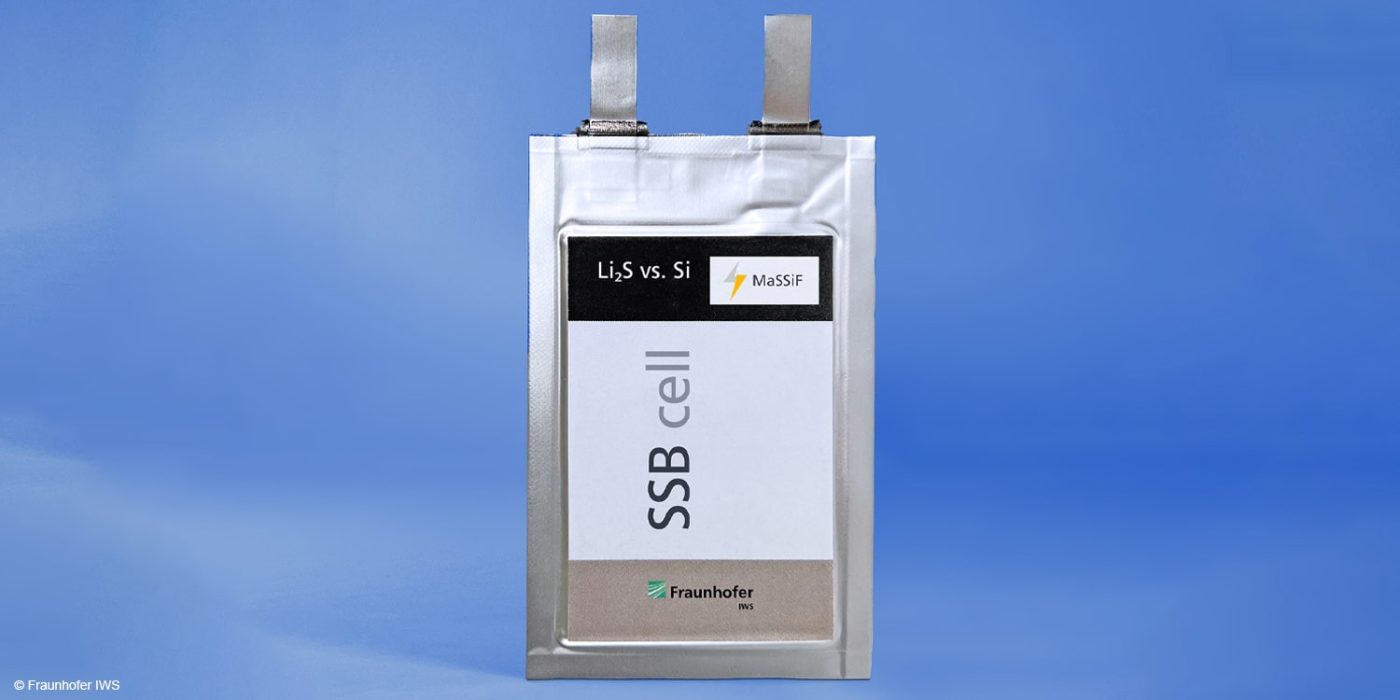Fraunhofer to build solid-state batteries based on Sulfur and Silicon
Fraunhofer IWS has launched a new research project called ‘MaSSiF – Material Innovations for Solid-State Sulfur-Silicon Batteries’ to develop sulfur-based prototype cells, which the team expects to become “very lightweight and cost-effective” while another component will secure the battery’s longevity.
The Fraunhofer team will apply silicon as the anode material to “significantly improve” the cycle life of the novel battery cells. At the same time, the combination with sulfur as the cathode active material holds “particular promise,” writes Fraunhofer. Free of the critical elements cobalt and nickel used in lithium-ion technology, sulfur achieves very high energy densities in solid-state batteries.
The ‘MaSSiF’ project, therefore, sets clear targets regarding said energy content and longevity. Fraunhofer specifies 350 watt-hours per kilogram and a service life of more than 300 cycles.
The project was launched in February 2023 under the leadership of the Fraunhofer Institute for Material and Beam Technology IWS in Dresden. There are, however, six other project partners. Fraunhofer adds that the partnering research institutes and industrial manufacturers were able to produce “all the necessary key components to investigate the fundamental structure-property relationships and to process and design components and cells”.
Besides Fraunhofer IWS, Fraunhofer IFAM is on board to develop separators specifically for the lithium-sulfur battery cell. Scientists at Westfälische Wilhelms-Universität Münster will research tailor-made solid electrolytes and their transport properties for the new battery type. Wacker Chemie AG supplies silicon and knows how to manufacture such anodes. AMG Lithium GmbH will contribute to the sulfidic solid electrolytes and novel cathode active materials. Schunk Kohlenstofftechnik GmbH takes on the production of carbon additives or industrially relevant composite materials.
The German Federal Ministry of Education and Research (BMBF) will fund the MaSSiF project with nearly 2.9 million euros.
The Fraunhofer Institute for Material and Beam Technology IWS develops complex system solutions in materials and laser technology.





1 Comment